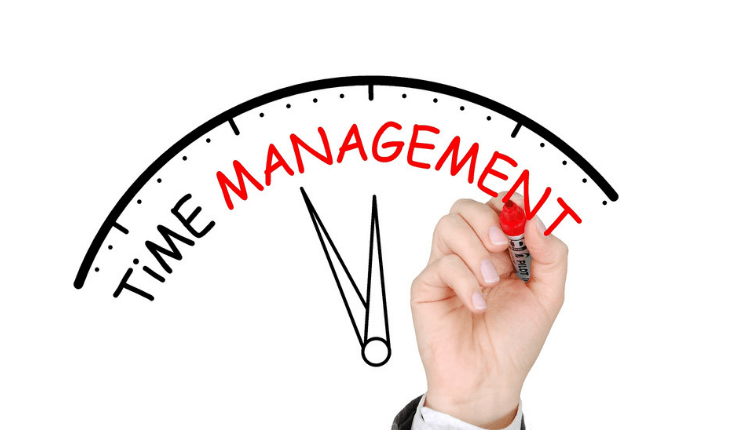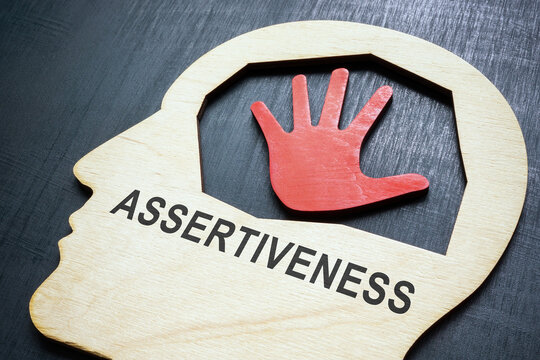
Introduction
Have you ever felt like the weight of the world was on your shoulders? That overwhelming sense of stress that seems to suffocate every aspect of your life? You're not alone. Stress has become a pervasive issue in American society, affecting millions of individuals each year. From the pressures of work and family to the constant bombardment of information and expectations, it's no wonder so many of us feel overwhelmed. But fear not, because in this article, we're going to unleash a treasure trove of stress-busting techniques that will help you bid farewell to overwhelm once and for all.
Recognizing Signs of Overwhelm
Before we dive into the solutions, let's first identify the problem. How do you know when you're truly overwhelmed? It's important to recognize the signs, which can manifest in various ways. Perhaps you find yourself constantly on edge, snapping at loved ones for the smallest of reasons. Maybe you're experiencing physical symptoms like headaches, muscle tension, or stomach issues. Or it could be a persistent feeling of exhaustion, even after a full night's sleep. These are all indicators that stress has reached a tipping point and is beginning to take a toll on your well-being.
The Power of Mindfulness
One of the most potent weapons against overwhelm is mindfulness. This ancient practice involves bringing your attention to the present moment without judgment. It's about fully immersing yourself in the here and now, letting go of worries about the past or future. Mindfulness can take many forms, from seated meditation to mindful eating and walking. The beauty of mindfulness is that it can be practiced anytime, anywhere, and its benefits extend far beyond stress reduction. Research has shown that regular mindfulness practice can lead to improved focus, emotional regulation, and overall life satisfaction. So why not give it a try?

Exercise: Nature's Stress Reliever
When it comes to combating stress, few things are as effective as exercise. Not only does physical activity release endorphins, the body's natural feel-good chemicals, but it also helps to reduce levels of cortisol, the stress hormone. Whether it's a brisk walk in the park, a heart-pounding cardio session, or a gentle yoga class, find an activity that speaks to you and make it a regular part of your routine. Not only will you feel better physically, but you'll also experience a significant boost in mood and mental clarity.

Healthy Lifestyle Habits
In addition to exercise, maintaining a healthy lifestyle is crucial for managing stress. This includes paying attention to what you eat and drink, ensuring you're properly hydrated, and prioritizing quality sleep. Certain foods, such as leafy greens, fatty fish, and nuts, are known for their stress-busting properties, while dehydration and poor sleep can exacerbate feelings of overwhelm. By making small, sustainable changes to your lifestyle, you can significantly impact your stress levels and overall well-being.
The Role of Social Support
They say that laughter is the best medicine, and there's truth to that statement. Surrounding yourself with supportive friends and family can work wonders for your mental health. Whether it's venting to a trusted confidant, seeking advice from a mentor, or simply sharing a laugh with a loved one, don't underestimate the power of social connections. And if you're struggling to cope on your own, don't be afraid to reach out for professional help. Therapists, counselors, and support groups can provide invaluable support and guidance during difficult times.

Time Management Strategies
Ever feel like there just aren't enough hours in the day? Time management is a common source of stress for many people, but it doesn't have to be. By prioritizing tasks, setting realistic goals, and learning to say no when necessary, you can regain control of your schedule and reduce feelings of overwhelm. Remember, it's okay to delegate tasks or ask for help when needed. You don't have to do it all alone.

Mind-Body Practices for Stress Relief
In addition to mindfulness and exercise, there are several other mind-body practices that can help alleviate stress. Yoga, for example, combines physical postures with breathwork and meditation to promote relaxation and inner peace. Tai chi and Qigong, on the other hand, focus on gentle movements and deep breathing to cultivate balance and harmony within the body. And let's not forget about acupuncture, an ancient Chinese healing modality that involves inserting thin needles into specific points on the body to promote healing and reduce stress.
:max_bytes(150000):strip_icc()/FINAL_VWFitFitnessAnnotations39-5b75c22546e0fb00257a7c72.jpg)
Unplugging in a Digital World
In today's hyper-connected world, it's all too easy to become overwhelmed by technology. Constant notifications, emails, and social media updates can leave us feeling frazzled and drained. That's why it's important to set boundaries with our devices and carve out time for unplugging and disconnecting. Whether it's a digital detox weekend or simply turning off your phone an hour before bed, find ways to create space for quiet and reflection in your life.

The Art of Saying No
As much as we'd like to do it all, the reality is that we have finite time and energy. Learning to say no is a crucial skill for managing stress and protecting your well-being. Whether it's declining a social invitation, turning down an extra project at work, or setting boundaries with family members, it's important to prioritize your own needs and not overextend yourself. Remember, saying no isn't selfish – it's an act of self-care.

Laughter: The Best Medicine
They say that laughter is contagious, and for good reason. Not only does laughter feel good, but it also has a host of physical and psychological benefits. When we laugh, our bodies release endorphins, those feel-good chemicals that help to reduce stress and promote relaxation. Laughter also boosts our immune system, improves mood, and strengthens social bonds. So go ahead, indulge in a little laughter each day – your body and mind will thank you for it.

Coping with Uncertainty
In uncertain times, stress levels can skyrocket. Whether it's a global pandemic, economic instability, or personal upheaval, uncertainty can leave us feeling anxious and overwhelmed. But it's important to remember that uncertainty is a natural part of life, and it's something we can learn to navigate with grace and resilience. By focusing on what we can control, practicing self-care, and seeking support from others, we can weather the storms of uncertainty with strength and courage.
Setting Realistic Expectations
In a world that glorifies perfectionism and achievement, it's easy to fall into the trap of setting unrealistic expectations for ourselves. But the truth is, no one is perfect, and striving for perfection only leads to stress and disappointment. Instead, focus on progress over perfection, celebrating your successes no matter how small. Remember, it's okay to make mistakes and to take breaks when needed. Self-compassion and acceptance are key ingredients in the recipe for a fulfilling and balanced life.
Seeking Professional Help
Finally, if you're struggling to cope with overwhelming stress on your own, don't hesitate to seek professional help. Therapists, counselors, and mental health professionals are trained to help individuals navigate difficult emotions and develop coping strategies for managing stress. Whether it's through talk therapy, medication, or a combination of both, there is support available to help you reclaim your life and
find peace of mind.
Conclusion
In conclusion, overwhelm may seem like an insurmountable obstacle, but with the right tools and techniques, it's possible to overcome. From mindfulness and exercise to social support and laughter, there are countless ways to manage stress and reclaim your sense of calm. Remember, it's okay to ask for help when needed, and to prioritize your own well-being above all else. So go ahead, unleash your inner stress buster and say goodbye to overwhelm once and for all. Your mind, body, and spirit will thank you for it.
FAQs
Q: How do I know if I'm experiencing overwhelm?
A: Signs of overwhelm can include constant stress, physical symptoms like headaches or muscle tension, and a persistent feeling of exhaustion.
Q: What is mindfulness and how can it help with stress?
A: Mindfulness is the practice of being fully present in the moment without judgment. It can help reduce stress by promoting relaxation, improving focus, and enhancing emotional regulation.
Q: What types of exercise are best for relieving stress?
A: Any form of physical activity can help reduce stress, but activities like walking, yoga, and cardio exercise are particularly effective at boosting mood and reducing cortisol levels.
Q: How can I improve my time management skills to reduce overwhelm?
A: Prioritizing tasks, setting realistic goals, and learning to say no when necessary are all important strategies for managing time effectively and reducing stress.
Q: What are some other mind-body practices for stress relief besides mindfulness and exercise?
A: Practices like yoga, tai chi, qigong, and acupuncture can all help promote relaxation, balance, and overall well-being.
Q: How can I set boundaries with technology to reduce digital overwhelm?
A: Setting limits on screen time, turning off notifications, and scheduling regular breaks from electronic devices can help create space for relaxation and reflection.
Q: Is it selfish to say no to others when I'm feeling overwhelmed?
A: No, saying no is an act of self-care and boundary-setting. It's important to prioritize your own well-being and not overextend yourself.
Q: Can laughter really help reduce stress?
A: Yes, laughter has been shown to release endorphins, reduce cortisol levels, boost the immune system, and improve mood.
Q: How can I cope with uncertainty during challenging times?
A: Focus on what you can control, practice self-care, seek support from others, and cultivate resilience to navigate uncertainty with strength and courage.
Q: What should I do if I'm struggling to manage overwhelming stress on my own?
A: Don't hesitate to seek professional help from therapists, counselors, or mental health professionals. They can provide support, guidance, and coping strategies to help you reclaim your sense of calm.


0 Comments